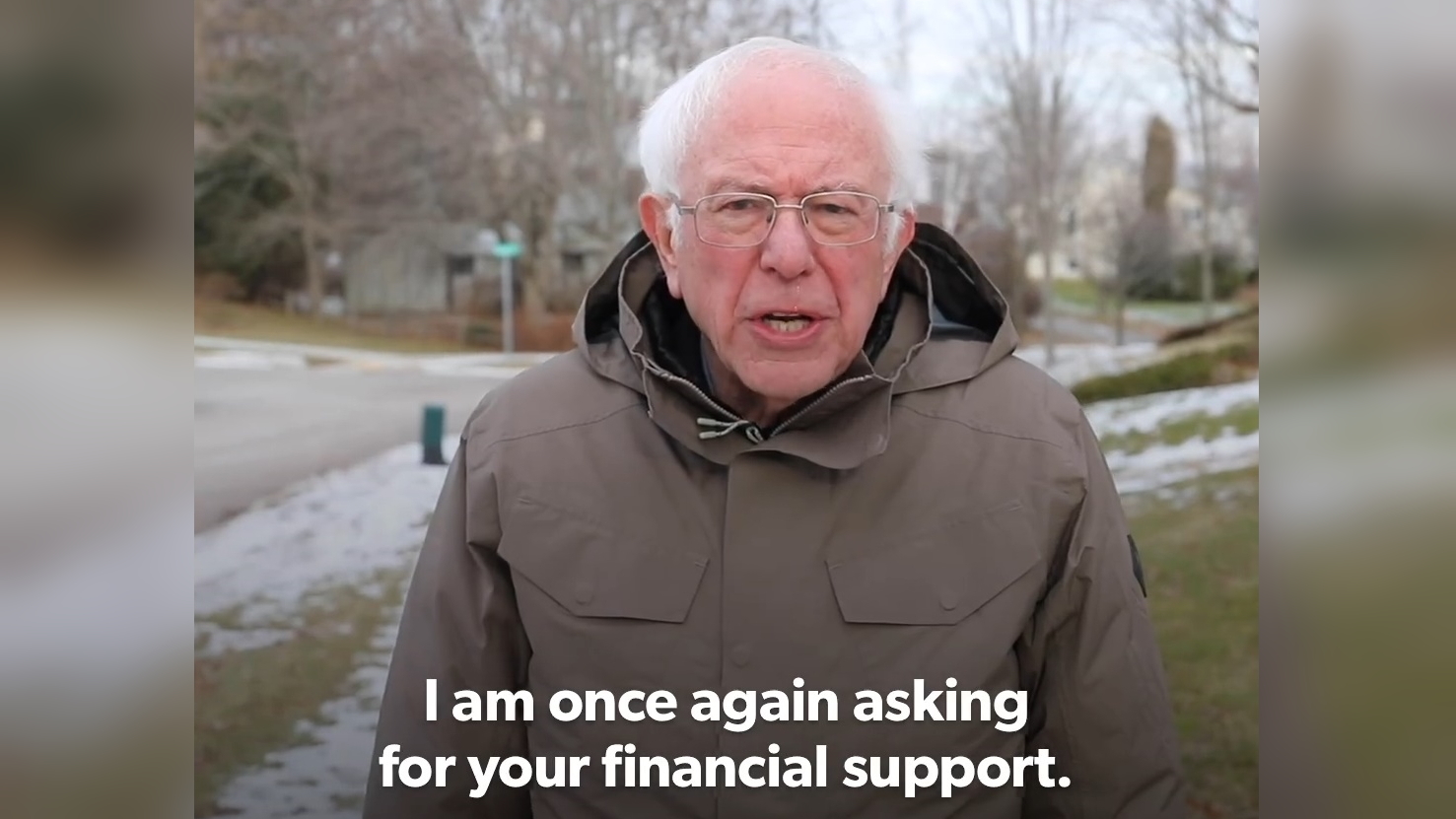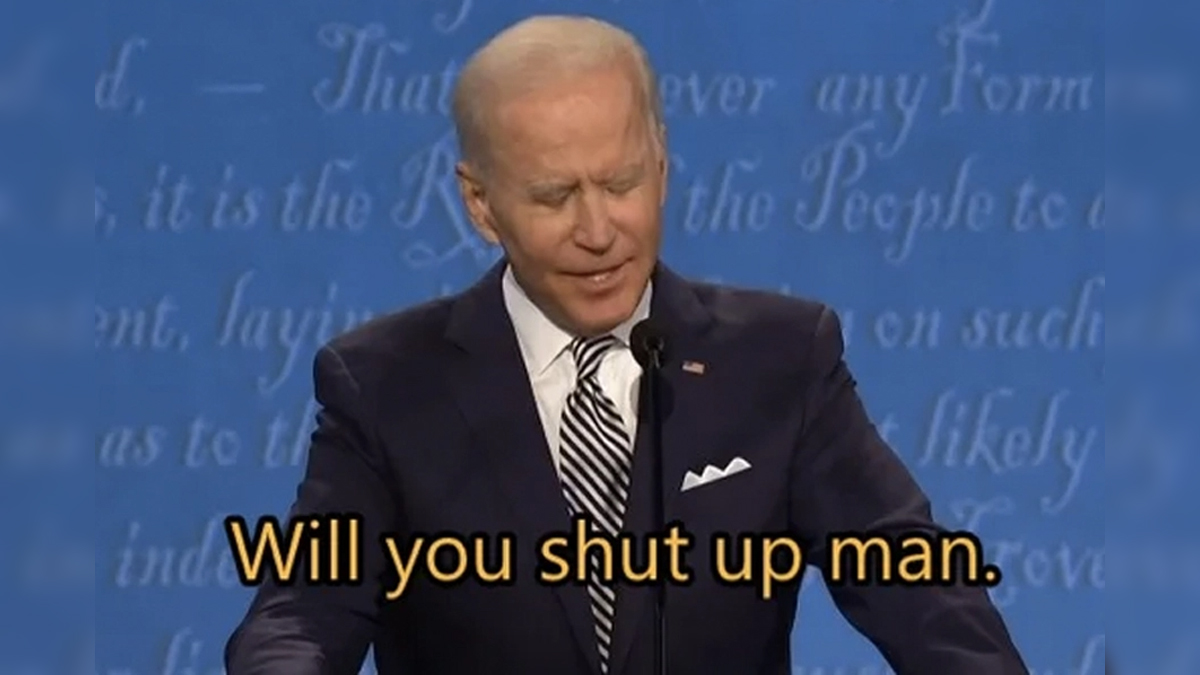As the presidential race between two American old-timers comes to an end, the Internet has seen it all: the tantrums, the attacks, and the blaming. Since this past year has been almost too eventful, the meme-masters have captured these moments, where presidential memes become the keepsakes and comic relief of millennials and Gen-Zers. Although this media format is often viewed as humorous artifacts of online pop culture, do they play a role in influencing our perceptions of these caricatured politicians? And why are politicians slowly adapting and taking advantage of this edgy and trendy means in their very own campaigns?
Pre-debate memes: Uncle Bernie and the Axios interview
Before descending into the meme black hole that is the presidential debates, let’s take a trip down memory lane to a simpler time, where the candidates have not openly obliterated each other on national television. The Internet exploded after Bernie Sanders, the so-called “socialist” candidate, posted a video of him asking for financial support from his voters on Twitter. The catchphrase “I am once asking for…” expanded well beyond its initial taksim escort humble beginning as it took the Internet by storm with its diverse applications. Want some food? “I am once again asking for Phở.” Desperately trying to meet your friends during a pandemic? “I am once again asking for a Zoom hangout.” Uncle Bernie also seemed to enjoy his fame and decided to run with the jokes, as he later posted his message on a subreddit. Gotta catch up with the kids, am I right?

As the world is caught up in this year’s whirlwind, Donald Trump (again) found himself in a meme whirlwind with his Axios interview about his policies and the coronavirus. The host, Jonathan Swan, perfectly captured the bewilderment of every person watching the interview and his expressions were too good not to be meme-ed. From annoyed, angry to questioning everything he knew about reality, Swan became a meme phenomenon overnight, particularly when Trump showed him the coronavirus data in the U.S.
Presidential Debates 2020: A Meme Saga
However, the past memes were rendered dull after the 2020 presidential debates. Political memes achieved a new pinnacle, where the candidates’ interactions were perfect ingredients for state-of-the-art, humorous memes.
While the American citizens are faced with less-than-ideal candidates, the Internet took up the role of recapping the debate’s highlights through memes.
The first presidential debate, according to CNN reporters, was a “sh*tshow,” “hot mess inside a dumpster fire inside a train wreck,” and a “disgrace.” While the American citizens are faced with less-than-ideal candidates, the Internet took up the role of recapping the debate’s highlights through memes. Donald Trump, amid a pandemic, criticized Joe Biden for wearing “the biggest mask [he’s] ever seen.” The Internet could not leave this one hell of a quote unused and edited strange and big masks to Joe Biden’s face. But the best meme undoubtedly has to be Biden’s iconic line “Will you shut up, man?” with multiple iterations circulating the web due to its ridiculous relevance. Your professor can’t stop rambling something for 2 hours straight on Zoom? Now you know the correct response (in secret, of course).

The vice presidential debate proved to be less dramatic and eventful, but a special guest flew into the scene, making quite a buzz in the meme community. Yes, I am talking about the absolutely sensational fly that dramatically but elegantly parked itself on Mike Pence’s head. The fly’s appearance has inspired hundreds of Twitter accounts under its name to commemorate this special occasion.
As election day is just around the corner, the final presidential debate was slightly more composed and collected than the September fiasco. However, it still could not escape the meme lords’ intense scrutiny. Although the final debate was said to introduce the “mute button” to control the candidates, its non-existing presence in the event sparked numerous memes, including one from the beloved Trevor Noah of The Daily Show. Joe Biden also made an honorary mention in this list with his frequent use of the word “malarkey” (which stands for meaningless talk), inspiring a much-needed drinking game for this election.
Politicians Stepping up their meme game: Cringeworthy attempts to win the Youth?
Since political parties seek support from young voters, they need to connect to this demographic, even if it means joining the meme bandwagon. Joe Biden represents this mantra, where he reposted the meme clips from the debate. He also made a splash with Mike Pence’s fly meme by holding a fly swatter, asking his supporters to “pitch in $5 to help this campaign fly.” He also posted on Twitter an image of a fly swatter with the phrase “Truth over Flies.” Other politicians also hop on the meme train, as Andrew Yang, another presidential candidate, focused on his persona as a “memeable person” because he wanted to appear “accessible and approachable.”
However, Donald Trump took another approach to memes, where these images are weaponized to attack his opponent. A few weeks ago, Donald Trump made headlines after tweeting out an ironic meme that reads “Biden for Resident” with the image showing elders in a nursing home.
This meme sarcastically calls Biden’s mental and physical fitness into question, despite Trump only being 2 years younger than Biden (exhibit 1, the spider-man meme). The Trump team has also intently utilized the meme card in his last election and during his presidency. Matt Braynard, the former director of data for Mr. Trump’s campaign stated how memes have an art to them.
Memes as Political Weapons: Myth or Reality?
According to The Conversation, Internet memes consist of two inherent qualities: inside jokes that trigger an emotional reaction, where understanding is observed through social membership. Viral memes disseminate political messages using humor and delegitimization to make arguments and can be collectively adapted to various scenarios.
However, memes are also deployed and weaponized in politics, as Internet communities on Reddit and 4chan spread offensive, hateful and toxic messages. This concerning atmosphere was intensified in the 2016 presidential topkapı escort election, where the 4chan’s /pol/ group launched countless attacks and conspiracies on Hillary Clinton. Since the Internet has been more fragmented than ever, memes are feared to replace “the nuanced debate necessary in a healthy democracy.” It has also become a challenge to hold creators accountable as memes are up to interpretation; creators can simply deny the given meaning or shrug it off as a harmless joke.
Memes and the new generation: A symbiotic relationship?
However, since memes have truly integrated and ingrained into this generation’s media diet, this symbolic media format can no longer be separated from political discourse and act as humorous coping mechanisms. Memes represent cultural moments and “take on the character of the people creating and consuming them,” where the youth is “in tune with the idiosyncrasies of the social and cultural dynamics of these platforms.” Nonetheless, they are critical with news, where they don’t just consume the “hollow and superficial politics” of memes but can discern authentic and genuine information. After all, memes are one of the methods this generation adopts to engage with politics, for better or worse.
Ultimately, the world needs to wake up to the potential and influence of memes, where memes are slowly “replacing nuanced political debate.” Doyle Canning, who wrote a book on using memes for political movements, stressed how people in the 2016 election failed to recognize the impact of memes as they believed that “rational policy discourse tuzla escort would triumph.” In her words, as chilling (or exciting as it is), “Now politics is just a battle of the memes.”
Cover:Climate XChange





